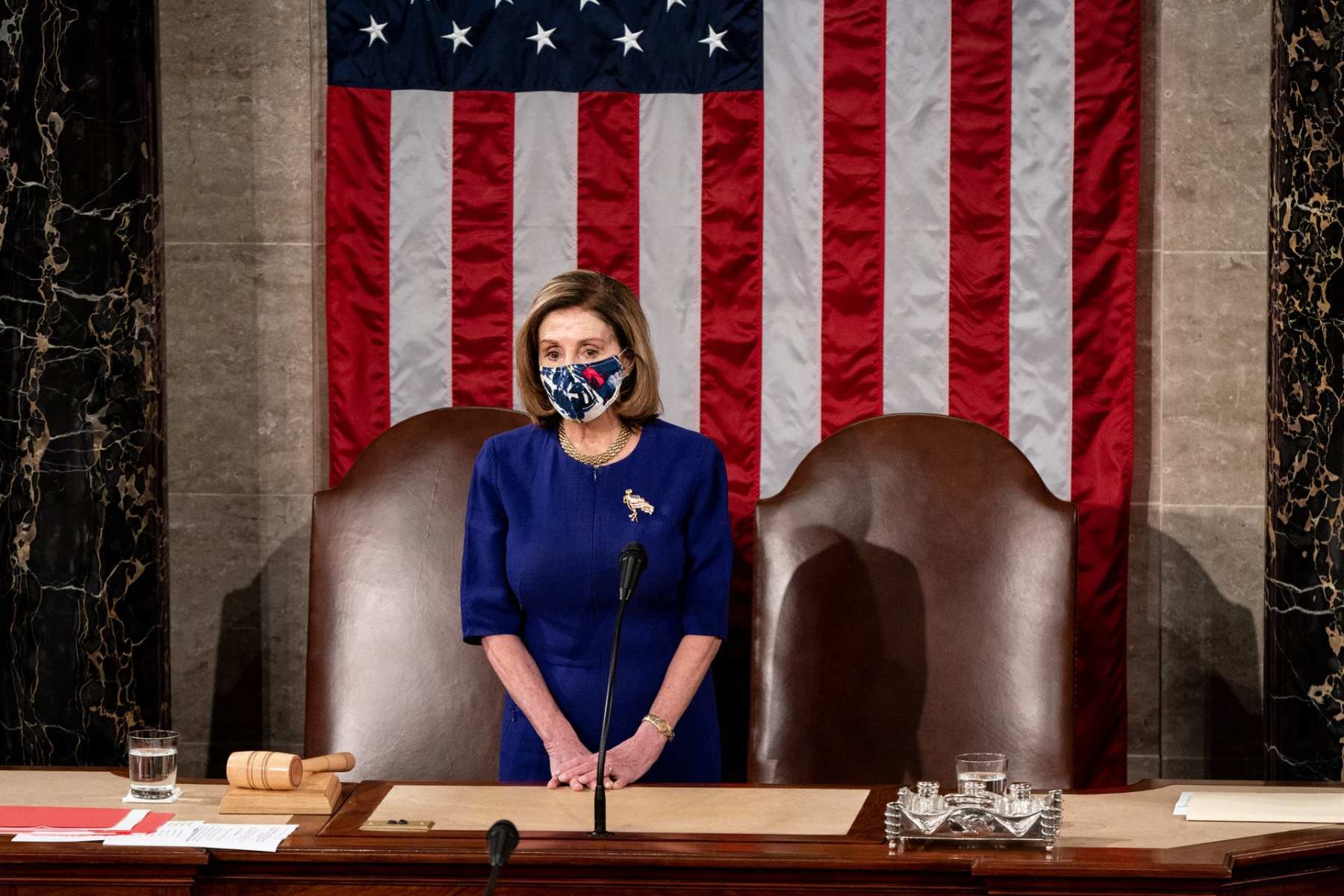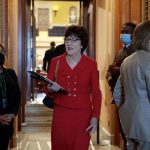Speaker of the House Nancy Pelosi has made clear that with Democrats in control of the Senate, passing voting rights legislation will be one of her top priorities this session.
On a call with House Democrats last week, after Democrats clenched two Senate runoff races in Georgia, Pelosi told her caucus that she had recently spoken with Chuck Schumer, the incoming Senate majority leader, about getting the Voting Rights Advancement Act passed.
The wins in Georgia change the dynamics of power for Pelosi, the first woman speaker of the House, who has helmed the chamber in recent years with some limitations because Republicans controlled the Senate during Trump’s presidency. She was reelected to her leadership post at the start of the new Congress with a razor-thin margin, and she has indicated it will be her last term as speaker.
Before the Georgia wins, Pelosi and other Democrats had already made a legislative push by reintroducing the For The People Act, a sweeping bill that would expand voting rights (including making voter registration automatic) and require more transparency around campaign finance disclosures. Lawmakers first passed the bill, also known as House Resolution 1, in 2019, but it was not taken up by the Republican-controlled Senate.
Earlier this month, Pelosi also signaled support for a bill that would make the District of Columbia a state, giving its residents voting representation in Congress. Lawmakers first passed the bill last year, but it was also ignored by Senate leadership.
Sam Berger, vice president of democracy and government reform at the left-leaning Center for American Progress, said the new Democrat-controlled Congress has a “historic opportunity” to advance voting rights legislation following the 2020 general election, which ended with President Donald Trump and some Republicans making baseless claims about widespread voter fraud. The lies culminated in pro-Trump rioters breaking into the U.S. Capitol to try to stop certification of President-elect Joe Biden’s win.
“We’re in a unique moment, of both recognizing the scope of the problem and also the potential for real solutions to make a difference,” Berger said.
The Voting Rights Advancement Act, if enacted, would establish new criteria for some states and local governments that seek to change voting rights laws. The legislation is in response to a 2013 U.S. Supreme Court ruling that invalidated parts of the 1965 Voting Rights Act prohibiting racial discrimination in voting.
The House first passed the bill in December 2019 and renamed it the John R. Lewis Rights Act last July, shortly after the death of the Georgia congressman and civil rights activist. The legislation has not advanced out of the Senate.
It’s still unclear whether these measures have the support to pass. The 100-member Senate will soon be split evenly between Republicans and Democrats, with Vice President-elect Kamala Harris able to cast a tie-breaking vote. But most legislation is expected to still need 60 votes to clear procedural hurdles in the chamber.
HR 1 is more comprehensive in its provisions to expand voting rights. Aside from automatic voter registration, it would expand same-day and online voter registration.
The League of Women Voters released a statement in support of HR 1 and the other voting-related measures.
“We urge the U.S. Senate to move this legislation forward when it reaches them, and call on all legislators, no matter their party affiliation, to support this legislation that is indisputably in the best interest of the American people. Our election system should be free, fair, and accessible to all Americans,” said Virginia Kase, CEO of the League of Women Voters.
Amel Ahmed, an assistant professor of political science at the University of Massachusetts Amherst, noted that the Georgia runoffs, which involved grassroots organizers turning out large groups of voters, showed the importance of election education during a time of massive disinformation. She supports HR 1 and believes a holistic approach is crucial.
“When we look at all of the efforts to suppress the vote, it’s not one thing. That’s why legislation, I think, poses a challenge,” she said. “It’s not any one thing. It is a whole array of things that come up that together — the purging of voter rolls, or the questioning of IDs and things like that — these require a much more tactical solution.”
Lia Merivaki is an assistant professor of American politics at Mississippi State University, whose research focuses on election administration. She noted that the country’s decentralized election system could present some roadblocks to any federal policy. For example, if Congress approves a universal vote-by-mail system, states could still have a lot of leeway in its implementation, creating different accessibility questions for voters. Republicans, many of whom have opposed voting expansion laws and policies by warning of widespread voter fraud that research shows does not exist, control more statehouses than Democrats and could still enact state policies that further create a hodgepodge of rules around voting.
“We don’t know how this is going to play out, but it is unlikely without pushback,” she said.
However, Jena Griswold, Colorado’s secretary of state, welcomed federal action to address attempts to suppress voter turnout in elections. Griswold has expanded voting access during her time in office, and was among the election officials around the country who vocally challenged incoming disinformation about voting integrity.
“At the end of the day when we’re talking about voting, we are talking about people’s fundamental rights,” the Democrat told The 19th. “And if states are not providing the type of access needed for American citizens to exercise those rights, Congress can absolutely put in a floor.”






